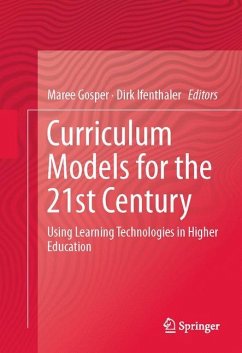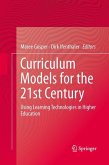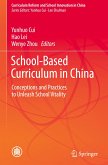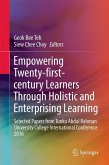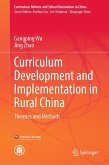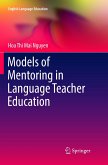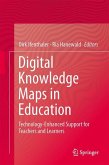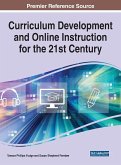Changing student profiles and the increasing availability of mainstream and specialized learning technologies are stretching the traditional face-to-face models of teaching and learning in higher education. Institutions, too, are facing far-reaching systemic changes which are placing strains on existing resources and physical infrastructure and calling into question traditional ways of teaching through lectures and tutorials. And, with an ever-increasing scrutiny on teaching and teachers' accountability for positive educational outcomes, the call for closer attention to learning, teaching and, most especially, to the design and delivery of the curriculum is given increasing relevance and importance.
Research provides strong evidence of the potential for technologies to facilitate not only cognition and learning but also to become integral components in the redesign of current curriculum models. Some Universities and individual academics have moved along this pathway, developing new and innovative curriculum, blending pedagogies and technologies to suit their circumstances. Yet, there are others, unsure of the possibilities, the opportunities and constraints in these changing times. Curriculum Models for the 21st Century gives insights into how teaching and learning can be done differently. The focus is on a whole of curriculum approach, looking at theoretical models and examples of practice which capitalize on the potential of technologies to deliver variations and alternatives to the more traditional lecture-based model of University teaching.?
Research provides strong evidence of the potential for technologies to facilitate not only cognition and learning but also to become integral components in the redesign of current curriculum models. Some Universities and individual academics have moved along this pathway, developing new and innovative curriculum, blending pedagogies and technologies to suit their circumstances. Yet, there are others, unsure of the possibilities, the opportunities and constraints in these changing times. Curriculum Models for the 21st Century gives insights into how teaching and learning can be done differently. The focus is on a whole of curriculum approach, looking at theoretical models and examples of practice which capitalize on the potential of technologies to deliver variations and alternatives to the more traditional lecture-based model of University teaching.?
From the book reviews:
"The main purpose of the book is to offer a variety of examples of how to incorporate learning technologies into the curricula of an array of disciplines. ... given the innovative and successful ways that instructors have used these technologies in the courses that are presented in the book, current and future educators would be wise to thoughtfully consider how to use learning technologies for their own classes. ... appropriate for educators and students of education and educational psychology." (Ngoc H. Bui, PsycCRITIQUES, Vol. 59 (28), July, 2014)
"The main purpose of the book is to offer a variety of examples of how to incorporate learning technologies into the curricula of an array of disciplines. ... given the innovative and successful ways that instructors have used these technologies in the courses that are presented in the book, current and future educators would be wise to thoughtfully consider how to use learning technologies for their own classes. ... appropriate for educators and students of education and educational psychology." (Ngoc H. Bui, PsycCRITIQUES, Vol. 59 (28), July, 2014)

